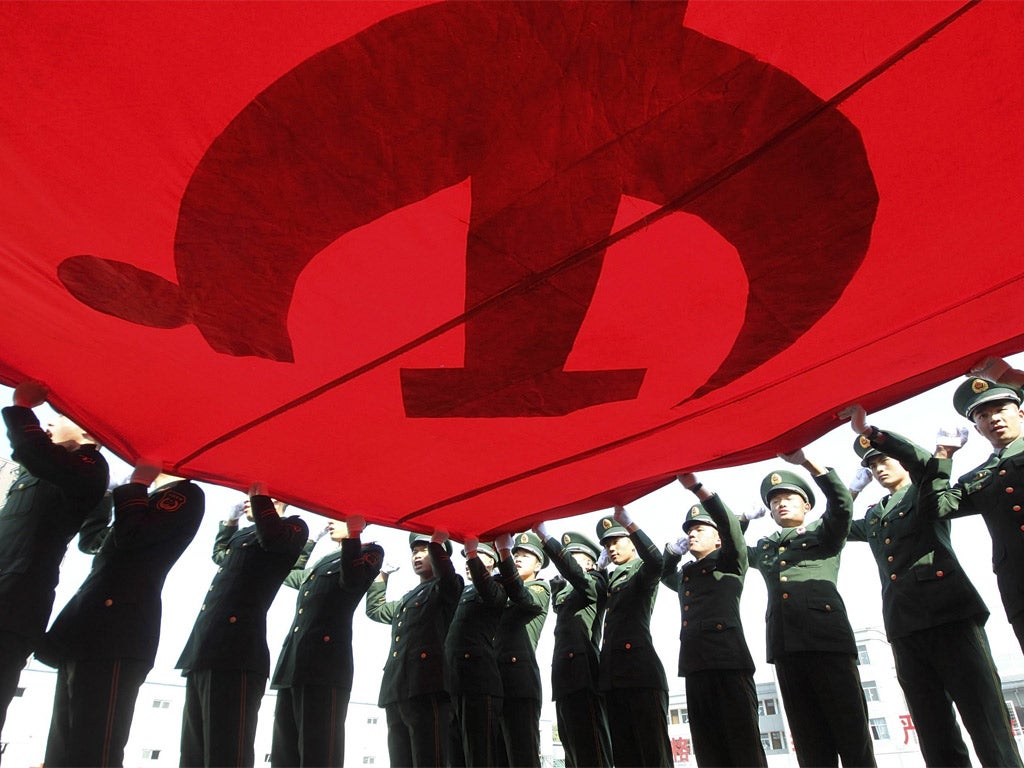Who's afraid of the big bad China?
As Xi Jinping is announced as the new leader of the Chinese Communist Party, it's time to reevaluate our not-so special relationship with China

Your support helps us to tell the story
From reproductive rights to climate change to Big Tech, The Independent is on the ground when the story is developing. Whether it's investigating the financials of Elon Musk's pro-Trump PAC or producing our latest documentary, 'The A Word', which shines a light on the American women fighting for reproductive rights, we know how important it is to parse out the facts from the messaging.
At such a critical moment in US history, we need reporters on the ground. Your donation allows us to keep sending journalists to speak to both sides of the story.
The Independent is trusted by Americans across the entire political spectrum. And unlike many other quality news outlets, we choose not to lock Americans out of our reporting and analysis with paywalls. We believe quality journalism should be available to everyone, paid for by those who can afford it.
Your support makes all the difference.The fifth generation of leaders, headed by Xi Jinping, is very likely to oversee China begin a new era as a world superpower, but will we ever see pictures of David Cameron and the charismatic Xi Jinping with their top buttons undone taking in a game, sharing cosy telephone calls or even Sam Cam and Xi’s famous folk singer wife sharing fashion tips over coffee? Some may be sceptical about this bond being formed as we treat China in a rather British, standoffish manner with scary, evil, Fu Manchu images ingrained in many minds.
Obviously the UK has many historical ties to the US and a ‘ special relationship’ might seem like the natural progression of this. However, in the current economic climate and with the current world power shift, it is time for the Camerons to start hobnobbing with the Xis.
China is still a very foreign distant place in the Far, Far East that many in the West do not understand. Part of the reason for this is China's phenomenal economic growth and the perceived shift in power, but these fears lacks consideration.
I know from first hand experience, working in a fashion sourcing company in Shanghai, that China is itself also being competed out of the market on cost by other emerging economies such as India. However, there are not the same negative feelings in the West towards India. Is this because India is much more familiar? The old imperial ties, and the many British citizens of Indian descent living in the UK, mean we are much more accustomed to their culture and customs. We are not exposed to Chinese culture and customs in the same way and when we are, it is often in a negative light, such as Channel 4’s recent Dispatches programme.
Another daunting element is China's extremely complex and tonal language. About 840m Chinese speak Mandarin as their first language yet only 375m people worldwide speak English as first language. As China continues to do well economically, there has been a flourishing interest in the language from students keen to further their future careers. I remember winning a debate, while a student of Mandarin at university in China. The topic was whether Mandarin would become the new lingua franca. To make my case, I only had to ask the many foreign students - from the US, Europe, Russia, Asia and Australasia, why they had decided to come to China to learn Mandarin, when many of them hadn’t mastered English first.
China, if predictions are correct, will be the first global superpower for centuries that is not Western and does not use English as a first language. Chinese culture and politics are quite rightly a world away from our own, but not necessarily fundamentally wrong. We, in the West, judge Chinese ideologies on Western principles, but this can be a reflection of Western arrogance and ignorance. Western yardsticks are used to condemn the lack of freedom of expression when there are actually millions of conversations on Sina Weibo, a Chinese micro-blogging site and many outings of corruption by Chinese netizens. There is always more that could be done, but we must bear in mind that China is continually growing, developing and changing.
The Chinese government has emphasised its ‘peaceful development’ but its inward looking policies and previous unwillingness to become involved in international affairs are partly to blame for the lack of understanding from the international community. However, Hu Jintao’s government successfully managed the global economic slowdown especially during the financial crisis. The stability of China remains crucial to the economies of the West and the world. The struggle is for the West is to accept and relinquish some of its power on the world stage. As China continues to open up I have no doubt that we will become more accustomed to our slightly distant neighbours. It’s time to stop being scared of the rising power in China, that we have no experience in our history of dealing with, and prepare for future generations to understand China better. The West cannot change China but it can try to influence and advise the burgeoning power. For many reasons we may never have a ‘special relationship’, but we can learn to be more understanding.
Join our commenting forum
Join thought-provoking conversations, follow other Independent readers and see their replies
Comments